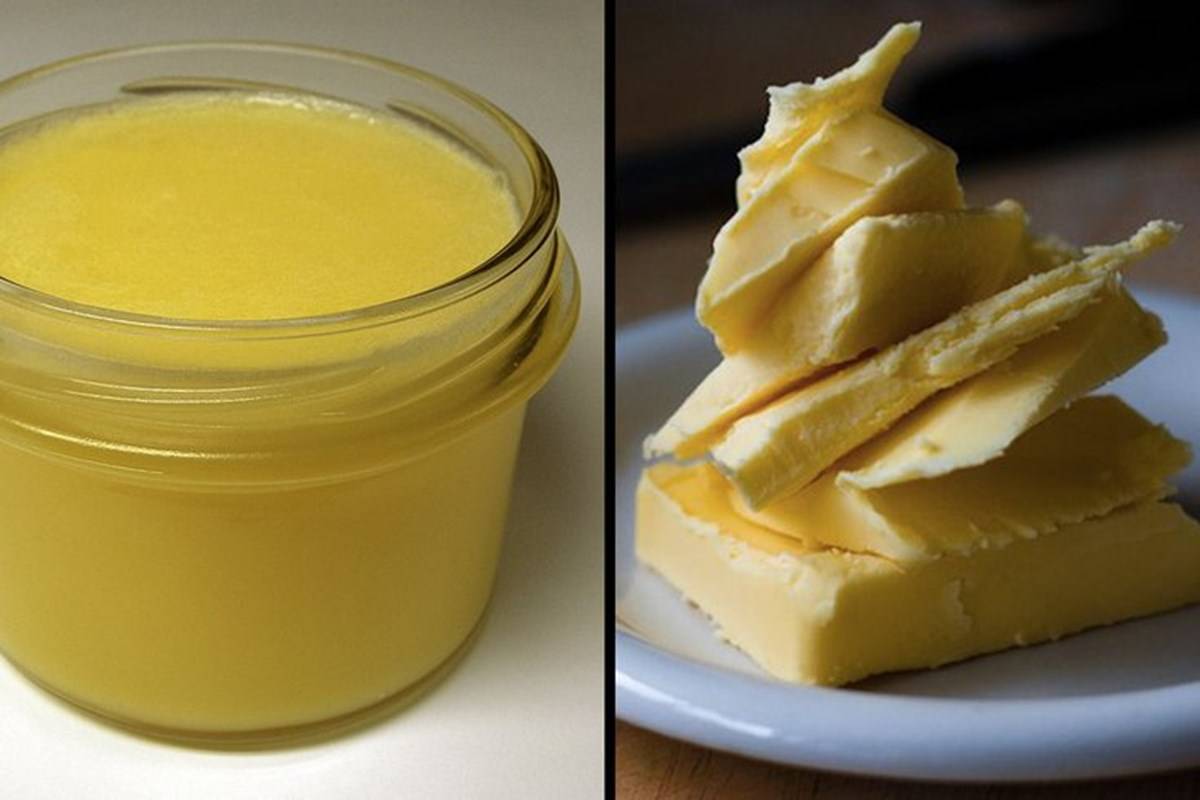
Ghee is a type of clarified butter that has been used in Indian cooking for generations. It is made by boiling butter at a low temperature until the water content and milk solids have evaporated. And, more recently, it's gained a reputation as a healthier fat alternative to butter.
It's very understandable if you've confused the two. "I think that people who are trying to eat healthier and believe that butter is bad will switch to ghee because it appears to be more natural," says Bonnie Taub-Dix, RD, author of BetterThanDieting.com and Read It Before You Eat It.
But are those assumptions correct, or is ghee just another untested health trend? Who wins the dispute between butter and ghee? Let’s start the debate, shall we?
Butter:
The issue regarding butter and saturated fat is this: Once upon a time, the medical community believed that consuming full-fat dairy products in excess would cause people to die young. While studies continue to link high saturated fat intake to heart disease, popular high-fat food trends (such as Bulletproof coffee) have changed the conversation.
David Ludwig, MD, professor of nutrition at the Harvard T. H. Chan School of Public Health confirmed, "Saturated fat used to be public-health enemy number one. But it's neither of those things nor is it a healthy food. It's a bit of a center ground."
The nutritional value of one teaspoon of butter is as follows:
-
36 calories
-
04 g protein, 4.1 g fat
-
5 g saturated fat
-
0 g of carbohydrates
-
0 g fiber
-
0 g sugar
-
1 mg sodium
-
125 IU Vitamin A
Ghee:
Dozens of people naturally assume ghee is a superfood because it is used in many Ayurvedic therapies such as massage, rash, and burn treatments (I wish). However, like butter, ghee's calories are entirely made up of fat. Because it's made out of 99 to 99.5 percent pure butter oil, it's dairy-free.
Ghee includes vitamin A and E (as does butter, FYI), as well as conjugated linoleic acid (CLA), which may help protect against colorectal and breast cancers. Butyrate, a fatty acid that may help digestion, is also present.
However, ghee, like butter, is heavy in saturated fat and is widely blamed for India's rising rates of coronary artery disease, according to research published in the Journal of Research in Ayurveda.
The nutritional value of one teaspoon of ghee is as follows:
-
45 calories
-
0 g protein, 5 g fat
-
3 g saturated fat
-
0 g of carbohydrates
-
0 g fiber
-
0 g sugar
-
Sodium: 0 milligrams
-
200 IU vitamin A
Because they're both derived from the same product, their nutritional value is so similar that deciding which is healthier comes down to your personal preferences and restrictions.
If you're pondering about buying either of them, Taub-Dix says they can be cooked interchangeably. As a result, butter and ghee are tied in the debate of which is healthier.









